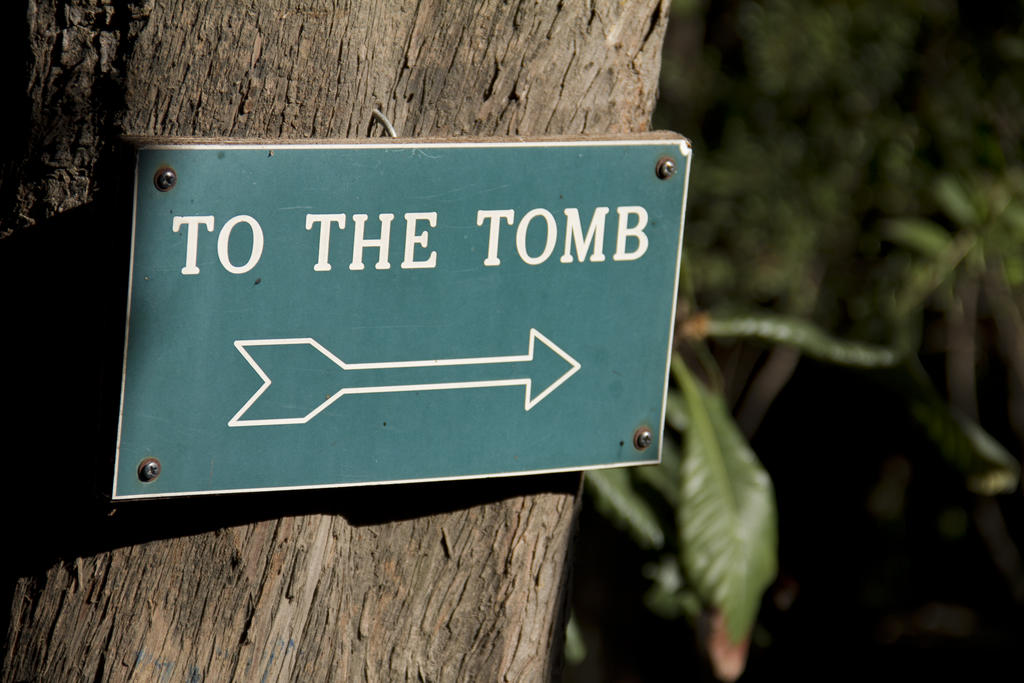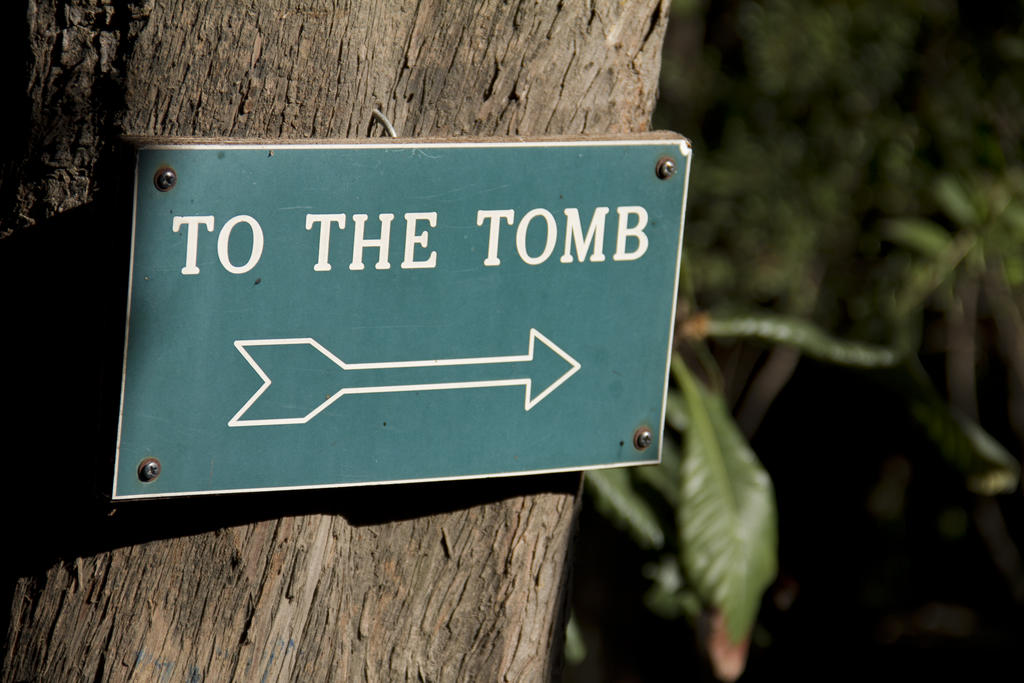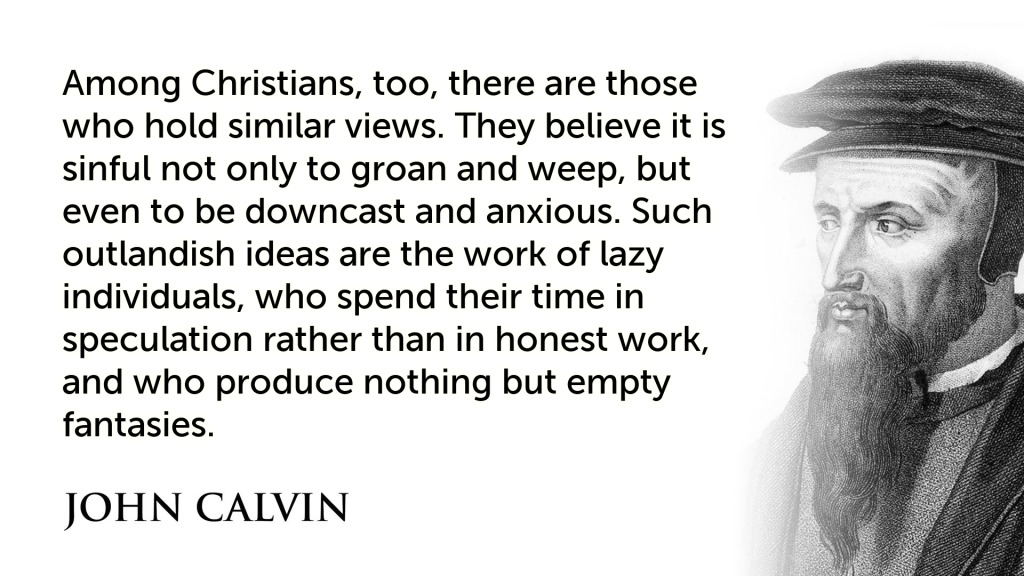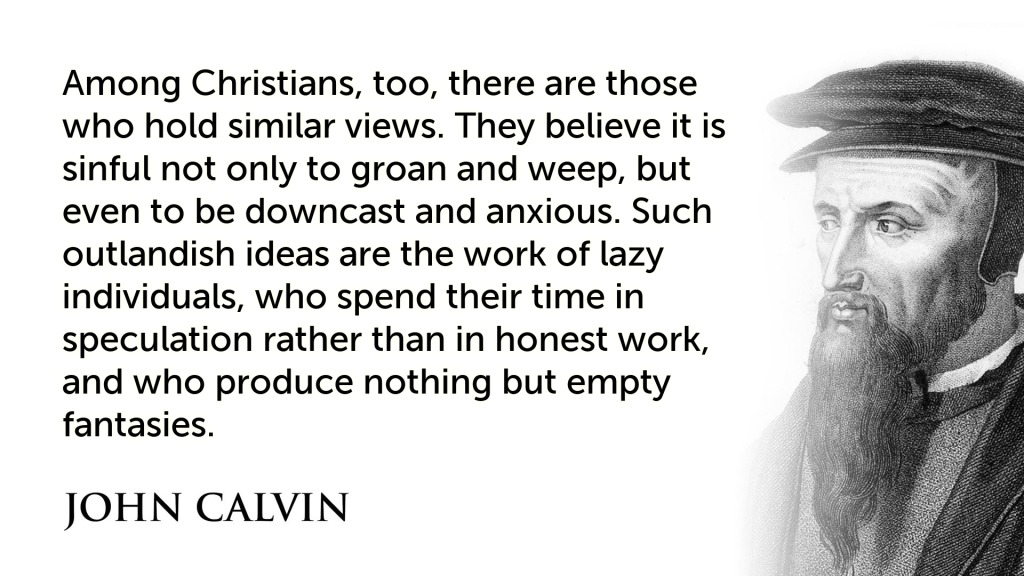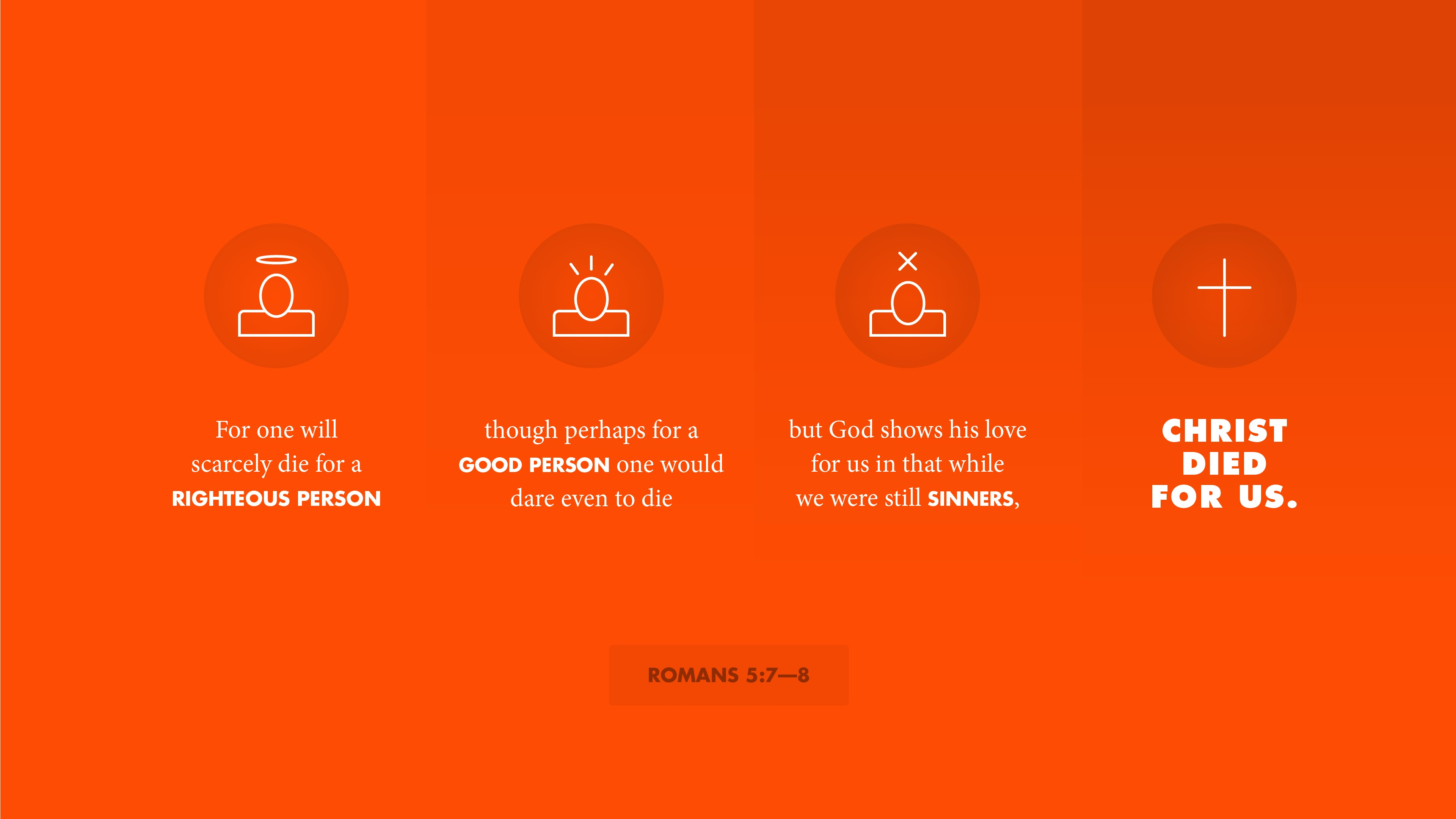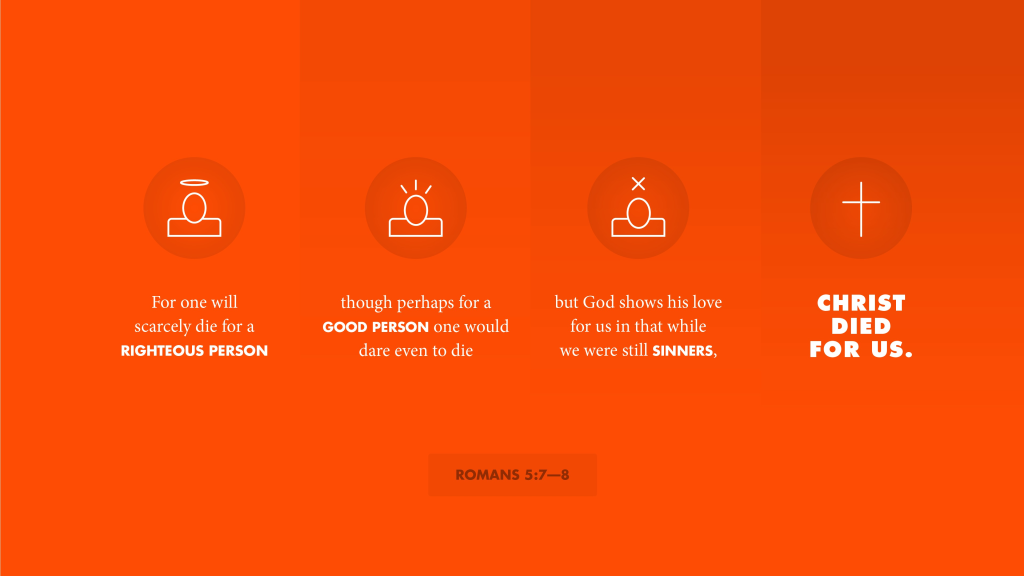What images and memories does the term Easter bring forth in your mind? For many of us, we can remember fondly events like Easter Egg hunts, gift baskets, and the like. Or perhaps less fondly, you remember being forced to take pictures with people in creepy giant rabbit costumes. Maybe you grew up in a home that went to church on Easter, so you remember singing songs, participating in reenactment plays as a child, and family meals after service.
Whatever your religious affiliation is or your exposure to Westernized Easter events has been, I think all of us have some sort of idea of the Christian resurrection story that Easter is based around. While you might not know or remember the details of this story, you know that there was a man named Jesus who died on a cross and three days later was raised to new life. At the root of this resurrection story is one central image: a large, incredibly heavy rolled-away stone and the empty tomb that it revealed.
What is the purpose of this empty tomb? Why was the stone rolled away? The answer for most of us is probably something like this: Jesus came back to life, got up, used miraculous strength to roll away the stone, and walked out of the tomb.Hence the rolled away stone and the empty tomb. But is that what really happened? Is that why the tomb was empty?
Immediately after the discovery of the empty tomb in John 20 we read of the first time Jesus appears to the disciples. Eight days later, Jesus again appears to the disciples in the same house. Both times, the author John goes out of his way to tell us that the doors of the house were locked, and yet Jesus suddenly appeared among them. Let that one bake your noodle for a second. The doors are locked, you’re surrounded by solid walls, and Jesus just physically appears amidst a group of people. We can debate the physics of this all we want – but the point is, solid objects couldn’t stop him.
So that begs the question, was the stone at the empty tomb really rolled away so Jesus could get out? Physical objects obviously were not a barrier for him. Had he wanted to, Jesus could’ve gotten up and left the tomb without ever having to roll away the stone.
When Simon Peter and John first showed up to the empty tomb, we read of how Simon Peter went in to the tomb and saw the grave cloths and the empty tomb for himself. You see, the stone wasn’t rolled away so that Jesus could get out, but so that we could get in.
When I asked you what images or memories the term Easter brought to your mind, what were they? Were they fond memories of celebrating with your family – memories such as church services, meals, holiday events, or dying eggs together? For many of us, there are no fond memories. Maybe it was just another day as any. Maybe you have sad and haunting memories of hypocritical parents who put on a good face at church but then came home and lived a life completely opposite of what they showed on Sunday morning. Maybe you didn’t have family meals and events because your family was so broken that a meal together was the last thing you ever would have done.
The first words of Jesus to his disciples after the resurrection were “Peace be with you” (John 20:19). Peace is a loaded term in our culture, but what Christ is talking about here isn’t a non-violent state of being between two or more parties. Peace is with us because his resurrection is proof that he alone has the power to bring true restoration, true healing, true beauty, true hope, true comfort and true love. Wherever you are this Easter Sunday, the empty tomb is for you. It is an invitation: come in and see that Christ has defeated death – just as he said he would. He has taken our shame and our guilt for us – just as he said he would. He has brought hope, comfort, and joy eternal – just as he said he would.
The tomb is empty, will you come in and see?
“Who do you say that I am?” This question may be one of the most well known lines Jesus ever spoke to his disciples. It is recorded in all three of the synoptic gospels (Matthew 16:13-16, Mark 8:27–29, Luke 9:18–20), and communicates a common theme amongst all four Gospel accounts. Even though Jesus was often clear about who he was and what he was sent to do, there was often confusion amongst the people about Jesus’ identity. Even the disciples, at times, were confused about what it meant for Jesus to be the Christ.
So who did people say that he was? It is clear throughout the Gospel accounts that the most common misconception people believed about Jesus was that he could either be John the Baptist or the second coming of Elijah. There was much confusion amongst the Jewish people over the roles of John the Baptist, Elijah, and the Messiah. What was the reason for this, and who was to blame? Is it significant? There is one conversation recorded in both Matthew and Mark that we can turn to that will help us answer our question.
The Transfiguration was a marvelous event that is again recorded in all three of the synoptic Gospels (Matthew 17:1-8, Mark 9:2–8, Luke 9:28–36). In all three accounts, the Transfiguration occurred immediately after Peter confessed that Jesus was the Christ. Yet, many people were still confused. Some said Jesus was really John the Baptist raised from the dead; others thought he might be Elijah or one of the prophets (Matthew 16:14, Mark 8:28, Luke 9:19). By all accounts there seems to be a bit of an identity crisis, and it centers on the role of the Elijah figure.
As soon as Jesus descended from the mountain at the Transfiguration, he commanded the disciples not to tell anyone until he had been raised from the dead. This command perplexed even Peter, who had just made his confident public confession. The disciples’ response to Jesus’ command holds the key to understanding their dilemma, “Then why do the scribes say that first Elijah must come? (Matthew 17:10)” The disciples had a problem with Jesus’ command because they knew the prophecy of Malachi 4:5-6, that Elijah would come and restore all things before the coming of the Messiah. This is what they had been taught by the scribes and religious leaders of their day. If Jesus is the Messiah, then that means the Elijah figure should have already come. If Elijah has already come, then all things should be restored – so why would Jesus still need to suffer and die?
There is a mixture of tenses used in Jesus’ response in verses 11 and 12, “Elijah does come, and he will restore all things.” The present tense in use (ἔρχεται) for an event in the past brings out continuing validity of the prophecy. The future tense (ἀποκαταστήσει) helps us see that a future aspect of the work was inaugurated, but is not yet finished. The use of the aorist (ἦλθεν) in verse 12, “But I tell you that Elijah has already come,” indicates that Elijah has already come in John the Baptist.
Jesus answers the disciples’ question by correcting and explaining the teaching of the scribes. Yes, the coming of a second Elijah would mean the restoration of all things, but these events would take place through the work of Jesus on the cross. Before all things would be restored, the Son of Man must suffer. It was not necessarily that the scribes were wrong, so much as they did not understand what it was that they were teaching. We see this in two ways.
The first is that while the scribes correctly taught Malachi 4:5-6, they were unable to recognize the one about whom the prophecy was written. Elijah has come, yet they (the scribes and religious leaders) did not recognize him. Secondly, while the scribes (somewhat) understood and taught the prophecies of Malachi, they did so at the expense of Isaiah’s prophecy regarding the suffering servant (Isaiah 53). Had the religious leaders attempted to understand the latter while also teaching the former, the roles of the Messiah and the Elijah figure may have been better understood.
One might be tempted to consider this whole situation as ironic were it not for the sovereignty of God working through the course of human history. For, as Christ himself notes, it is the very scribes who thought they were teaching Malachi 4:5-6 properly that ended up persecuting and allowing John the Baptist to be delivered to Herod (Matthew 17:12). And, as Jesus points out, it would be in a similar fashion that the Son of Man would also come to suffer. As Jesus’ disciples were unprepared for the suffering of the second Elijah, so too were they unprepared for the suffering of the Messiah. In a divine plan that only a sovereign God could carry out, those who were supposed to be closest to God became his instruments for saving those who were farthest from him.
There is often much confusion today about who Jesus is. The million dollar question, “Who do you say that I am?” is just as important for each of us to answer today as it was for Peter to answer 2000 years ago. Some say that he’s a good man, others say he’s a great moral teacher, and still others would claim he’s a complete fraud. Some “teachers of the law” would even have us believe that Jesus is a divine wish granter who is eager to meet our deepest desires. Yet, just as it was for Peter, may the confessions of our heart ring true: “You are the Christ, the Son of the living God.”
Jason Gray is a well-known Christian singer/songwriter. His songs are popular on Christian radio, and he has been widely recognized by websites and critics as a bestselling musician. Yet, what many people probably don’t know about Jason is something that you can’t necessarily pick up on by hearing his music; Jason has a speech handicap commonly known as “stuttering.” God’s grace to Jason is that his stuttering ceases whenever he sings. In his live album Acoustic Story Time, he tells the story of what it was like to feel compelled to become a musician who has such a handicap. By his estimation, there was no room for such a weakness in one of Christ’s disciples. Christ’s ideal disciple, Jason thought, was a person who carried him/her self like the Marlboro Man – someone who was cool, calm, collected, and competent.
What Jason realized over time, however, was that God does not call us to be his disciple in spite of our weaknesses but because of them. He has since observed in his time traveling the world that Christians tend to have such an emphasis on the virtues of strength and healing that they leave no room for the virtues of weakness and suffering. It is the latter, Jason observes, that are often the sweeter Birthday Gift Box for Her. For not only is God able to use the latter to increase his strength and glory in our lives, but he also uniquely equips us to become instruments of mercy to others who are suffering.
Dr. Richard Gaffin, professor of Biblical and Systematic theology at Westminster Seminary observes, “The Pentecostal Spirit is as well the Spirit of suffering, although this tends to be the spiritual gift that no one is talking about.” He is right. The church today struggles with properly understanding the role of suffering in the Christian life. Is there room for suffering and weakness, and if so, what should that look like?
The Apostle Paul gives us a very important key to answering this question. In Romans 8:12-17, Paul teaches us that if we have the Spirit of God’s salvation, then we have become children of God. The Holy Spirit himself testifies that we are children of God, and because we are children, we are also God’s heirs and fellow heirs with Christ. I think a lot of us would end our description of this important passage there, but we’d leave off the most important part of the passage – that all of the above is true only if we are joined in suffering with Christ (Romans 8:17).
One of the reasons why we Christians tend to handle suffering poorly is because we are not prepared adequately for it. The truth is, those whom God has adopted through Christ should prepare themselves for a life full of various trials, toils and difficulties. When these sufferings come our way, we can handle them with joy and praise because the more we endure misery and affliction, the more our union with Christ – our salvation – is confirmed.
There are those who would say that there is no place for suffering or weeping in the Christian life. Some would go so far as to say that depression or mourning is a conscious act of sin, and that unless the Christian is filled with joy at all times then they are rejecting God. Such a view of the Christian life is both cruel and unbiblical. John Calvin was accurate in his strong rebuke of such people:
Among Christians, too, there are those who hold similar views. They believe it is sinful not only to groan and weep, but even to be downcast and anxious. Such outlandish ideas are the work of lazy individuals, who spend their time in speculation rather than in honest work, and who produce nothing but empty fantasies.
This reality is probably the one thing that makes me saddest about health and wealth teachers. It is not the mere fact that they are theologically wrong (which is true), but that they are denying those who follow them the privilege of rejoicing in their suffering as an adopted child of God. For it is when we suffer that we are most able to relate to the ministry of Christ. Charles Spurgeon once said,
Personally, I also bear witness that it has been to me, in seasons of great pain, superlatively comfortable to know that in every pang which racks his people the Lord Jesus has a fellow-feeling. We are not alone, for one like unto the Son of Man walks the furnace with us.
Our strength to find solace, refuge, joy and strength in our sorrows and suffering does not come from ourselves, but in the reality that Christ went ahead of us in this way. He groaned and wept; he suffered physically, mentally, emotionally and spiritually. It is in this example that he teaches us to do the same: the world will rejoice while we weep and lament, yet our sorrows will be turned into joy (John 16:20). So Christian, be prepared for suffering; and when it comes, rejoice! This isn’t easy to do, it’s a daily fight for joy in our suffering. But we can take comfort in the fact that as we suffer, our Father is verifying our status as a son or daughter, and he does so in love for us as he uses this light and momentary affliction for our good and our joy.
My wife and I are currently in the process of finishing up our 2014 taxes. Like the rest of you, we’re busy trying to figure out whether we have all of our tax documents, if we’ve entered all of the information correctly, and if we’ve maximized the greatest possible return on our taxes. Now, I don’t know much about taxes or how they’re calculated. I’ve always just entered the standard information on my W-4 and sort of…hoped for the best around tax season. What I do know is, if I’ve paid more then I’ve supposed to during the year – I get something back. If I were to somehow pay the exact right amount, I wouldn’t get anything back – but I also wouldn’t owe anything. Sadly, I’ve been in the position before where I didn’t pay enough during the year and I end up owing money to the government. Nobody likes that. To be honest, my knowledge about taxes comes down to nothing more than a gamble – I never really know what my return is going to be once everything gets filed.
I’ve talked to a lot of people who – in a similar yet much more significant way – take a gamble on God. Many people have a position towards God – if He exists, anyways – that just trying hard enough to be a good person puts them on right terms with God. You might think, “If I do enough good things, wouldn’t God owe me?” Or, at the very least, “If my good and bad deeds even out, God and I will be neutral, right?” You might even think that it’s only if your bad deeds severely outweigh your good that God would have any business punishing you. Do your best, make people happy, and God owes me one.
Is that right? Or are you taking a gamble?
When we think about God, ourselves, and our relationship to him, we need to think about these things on his terms, not on our terms. Anything less is wishful thinking. So here’s the thing about our good deeds. We tend to think of all of our good accomplishments – whether it is serving a homeless person or smiling to our neighbor – as going above and beyond. We like to think that our good actions are a positive investment that will net us a big return. But the reality is, being perfectly good and obedient is just the baseline of what is expected of us. There is no going above and beyond where good deeds are concerned. The Apostle Paul explains this at length in the Book of Romans when he says, “Now to the one who works, his wages are not counted as a gift but as his due” (Romans 4:7). You owe God perfect obedience and good works, nothing you do is above and beyond the expectations.
But here’s the problem. None of us have ever or could ever say that we’ve had perfect obedience and good work. You might say, “I’m not as bad as ____ (fill that in with whatever your movable standard is),” but that doesn’t mean anything to a perfectly just God. Either you’ve perfectly obeyed, or you haven’t. As hard as it may be to admit, in our heart of hearts we all know that we haven’t been able to do this (Romans 3:23). Even if we could perfectly obey from this moment forward, we would still have a blemished track record that we couldn’t make up for. No matter how hard we try to be a good person, we’ll never be able to pay enough back to God.
You might be saying to yourself, “That sounds ridiculous. Of course nobody can be perfect all the time, how could God punish someone who is relatively good?” The problem with that question is that its relative. Again, if we think in God’s terms and not our own, then we need to be prepared to say that things cannot be relative. Either God is just and punishes sin, or he is the cosmic absent deity who cares very little about your life.
So where do we go from here? Let’s consider again what Paul has to say in the next verse of Romans, “And to the one who does not work but believes in him who justifies the ungodly, his faith is counted as righteousness” (Romans 4:8). What is Paul saying here? Is Paul saying that we don’t need to try to do good at all as long as we believe in something? No, in fact, elsewhere Paul will passionately explain how those who believe must necessarily work as hard as possible to love God and love their neighbor.
What the Apostle Paul is explaining in these two verses is that our forgiveness, our right standing with God, cannot come from what we do. That is impossible, because we can’t do enough to earn that. Our forgiveness and our right standing, must come simply through faith in the one who freely gives that to us. And who is that? Paul explains:
For while we were still weak, at the right time Christ died for the ungodly. For one will scarcely die for a righteous person—though perhaps for a good person one would dare even to die—but God shows his love for us in that while we were still sinners, Christ died for us. Since, therefore, we have now been justified by his blood, much more shall we be saved by him from the wrath of God (Romans 5:6–9).
See, God is not only just but he is also gracious, merciful, and abounding in steadfast love and patience. Yet, every single one of us must face the reality that when we stand before God and hand in all of our documents, we each will owe far more than we will be able to pay. But for the one who comes empty handed, not boasting in his success and earnings, but pleading only the blood of Christ, he can and will be forgiven. His return will not be what he is due, but what is due to Christ – the full inheritance and manifold blessings that are worthy of a son or daughter of God.
So friend, let me ask you: are you taking a gamble with God? Are you banking on your own insufficient merit and knowledge in hopes that you’ve made enough positive investment to get a big return? Acknowledge your inadequacy and ask for the grace and mercy from the one who gives it abundantly, and receive a return worth far more than can be measured: love, acceptance, forgiveness, mercy, kindness, adoption, peace.
